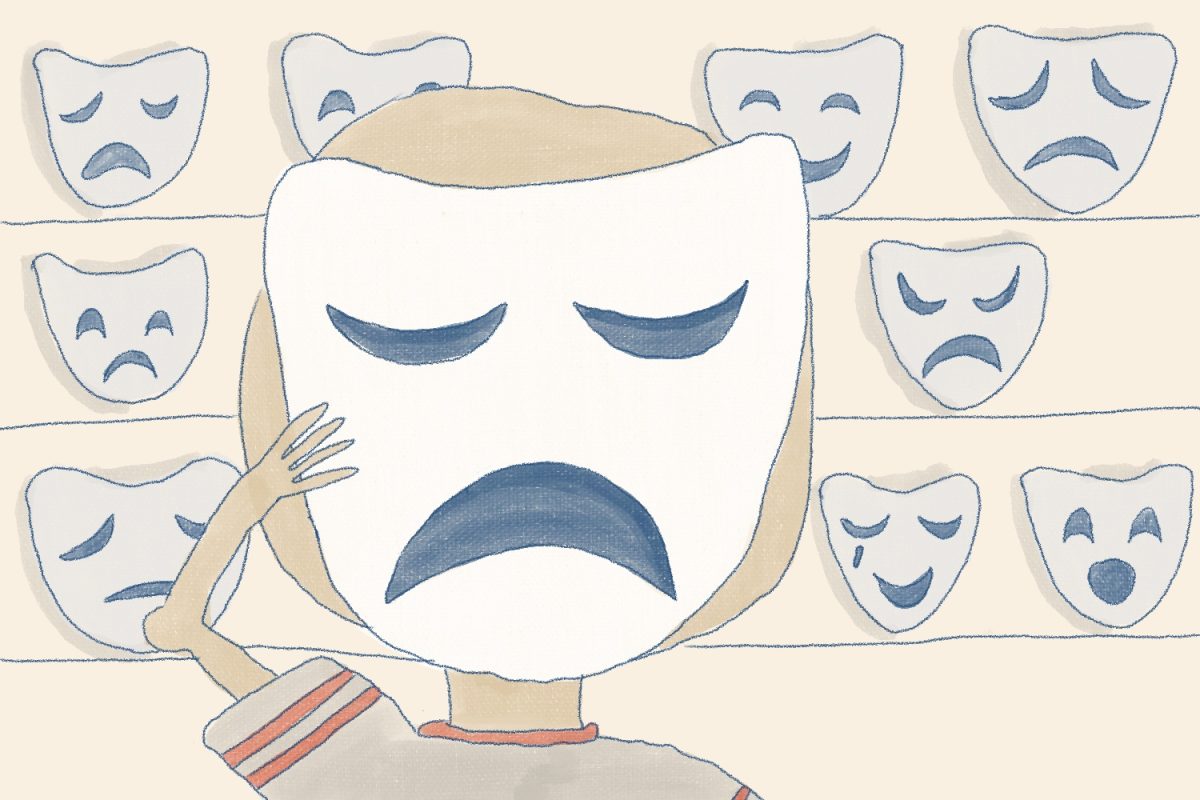Mental illness is not a quirky personality trait, unlike how it has been portrayed recently.
We have all relished in our own sadness at some point. Maybe you even posted a crying selfie, mascara running down your cheeks while listening to Lana Del Ray on vinyl—no judgment.
Our generation is very open about our emotional struggles, which I really admire; however, I believe the pendulum may have swung too far, and the struggles we tried so hard to destigmatize have become re-stigmatized.
Twenty-three percent of adults received mental health treatment in the past twelve months, and 16% took prescription medications, according to a 2020 survey by the CDC.
I, like most of my peers, spend most of my free time scrolling on social media. In doing so, I have noticed a disturbing trend of mental illness and disorders being treated as a quirky personality trait.
I’ve noticed that because it’s become so common for people to label their sadness as “depression” or nervousness as “anxiety,” when someone actually suffers from these chronic conditions, they are not taken as seriously.
People wear their mental illness around like it’s a t-shirt—literally.
On Etsy there are shirts that say “stressed, depressed, but well dressed.” Aside from the fact that if you’re wearing this shirt, you’re not well dressed, it’s strange to be advertising your mental illness.
Take intrusive thoughts, for example.
Intrusive thoughts are thoughts that interrupt the flow of daily activities, despite efforts to avoid them, according to the American Psychological Association. The APA clarifies that “minor intrusions” are common, but more upsetting ones are typically a result of trauma or obsessive-compulsive disorder.
Online and in everyday conversation, the phrase “intrusive thoughts” has been watered down to silly thoughts like “I should cut my bangs today,” or “I want to book a last minute trip.”
Now, under the illusion of acceptance, people who suffer from more distressing intrusive thoughts feel more comfortable sharing them, only to be met with backlash online and in-person.
There is a mold that a mentally ill person is supposed to fit into, and when they do not fit that mold, they are ostracized.
When someone exhibits symptoms of mental illness that cannot be romanticized such as being easily agitated, self-isolating and showing symptoms of mania or psychosis, the general population tends to have less sympathy.
Even ADHD and autism spectrum disorder have fallen victim to this phenomenon.
Similar to the uptick in adults going to therapy, more people are being diagnosed as neurodivergent. This is likely due to increased awareness and representation in the media, according to Psychology Today.
As someone who is not neurodivergent, I cannot comment on the experiences of those who have ADHD or autism. However, from an outsider’s perspective, I see them receiving similar treatment to those with depression or anxiety—it appears these mental disorders have become a trend.
“It pisses me off,” says first-year Max Wilson, a member of the Disabled Student Union. “I’m here hating myself because I can’t get up and do things while people are treating [autism] as a trend.”
There was a time where my For You Page on Tiktok was flooded with videos saying “if you have any of these symptoms, you may have ADHD/Autism,” along with extremely vague symptoms like trouble focusing, getting overstimulated easily and forgetfulness.
I must clarify that those who do their own research which leads them to identify with a specific diagnosis is not inherently negative—many do not have the resources to receive an official diagnosis.
More exposure to ADHD and autism might prompt people to do their own research, but can also lead to people treating these disorders and labels frivolously.
With the watered-down presentation of mental disorders and illnesses that society has grown accustomed to, people who suffer from them have only grown more outcasted if they do not live up to society’s expectations.
One simple way to reduce the re-stigmatization of mental health is to stop using mental health or “therapy talk” in daily conversation. Phrases like “I’m so OCD” when the person does not have OCD are harmful to people who actually have it.
Using humor is a helpful coping mechanism for those who have mental illness. I personally love joking about my anxiety, but it’s not so funny anymore when I become the butt of the joke over something I cannot control.














